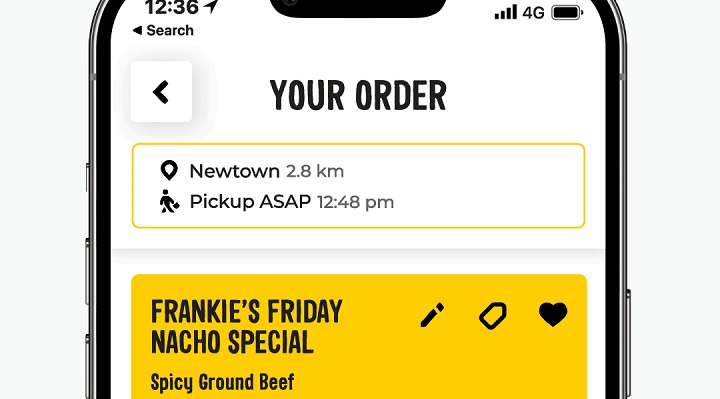Mexican fast food chain Guzman y Gomez (GYG) is going all-in on mobile ordering as it looks to satisfy the growing appetite for convenience in the restaurant industry. The business recently relaunched its mobile app to allow users to customise menu items, save their favourite orders and choose whether they want to collect their food in-store or via drive-thru. This marks the first major update since GYG launched the app in 2016. “The reason for the relaunch was because techno
se technology never stops, and with the growth of delivery, guests have become more accustomed to ordering food on their mobile phones,” GYG founder and CEO Steven Marks told Inside Retail.
“We felt we could create an even better user experience for our guests and make ordering faster and easier than ever.”
Members of the Gomex loyalty program can also use the app to keep track of their points and redeem them to pay for meals. The program has more than one million members, according to Marks.
Benefits of mobile orders
Like many fast food chains, GYG saw a big uptick in mobile ordering during Covid – both through its own app and via third-party platforms like Menulog, Uber Eats and Deliveroo.
“Our app sales more than tripled during Covid, but we also chose to prioritise value during that time,” Marks said.
“During lockdowns, [we] reduced our prices on our app which moved a lot of guests to app purchases, and they have continued to order via the app post-lockdown.”
Tighter integration with drive-thrus and other new features focused on convenience are expected to convert even more customers into app users going forward. Since relaunching in April, the app has been downloaded more than 400,000 times.
This is good news for GYG since the more mobile orders it receives, the more efficiently it can serve customers, leading to increased profits.
“Our restaurants are busy and we want our guests to be able to access GYG anytime, anywhere and how they want,” Marks said.
While third-party delivery platforms theoretically give restaurants the same ability to leverage their existing infrastructure better, there are strings attached.
Third-party delivery platforms typically charge restaurant commission fees of between 15-30 per cent per order, so most restaurants end up raising menu prices to preserve their profit margin.
Even so, a 2021 report from McKinsey found a connection between “delivery-fuelled revenue spikes and profit declines” in the hospitality industry.
“Realistically, restaurants’ traditional profit margins of 7 to 22 per cent make covering the platforms’ delivery commissions […] unsustainable as delivery orders become a larger part of a restaurant’s business,” the report stated.
Technology key to growth
The investment in mobile ordering technology is a key part of Marks’ growth strategy for GYG.
He has ambitious plans to expand the store network, which currently includes more than 160 locations in Australia, Singapore, Japan and the US.
“We understand the number of restaurants we are opening in future and we need world-class technology and solutions to support that growth,” he said. “We certainly invest ahead of the curve and it’s paying off.”
Marks said that GYG is always thinking about “what’s next” and is “very strategic” in the technology platforms and partners it chooses to work with.
“At present, every single department at GYG is looking at technology, platforms and solutions that can help us achieve our goals,” he said.
“We do our homework and whilst we can’t share who we will be working with next, we can certainly say that we’re excited about what the future holds.”
GYG’s tech-centric approach to fast food has helped it attract investment from the likes of Magellan Financial Group, which also holds shares in Starbucks and McDonald’s.
The specialist funds manager recently sold its 11.6 per cent stake in the business to Barrenjoey Capital Partners for a cash consideration of $140 million.
In an ASX announcement, Magellan’s chairman Hamish McLennan called GYG “an outstanding company” and said the sale was consistent with its strategy to focus on its core funds management business.

